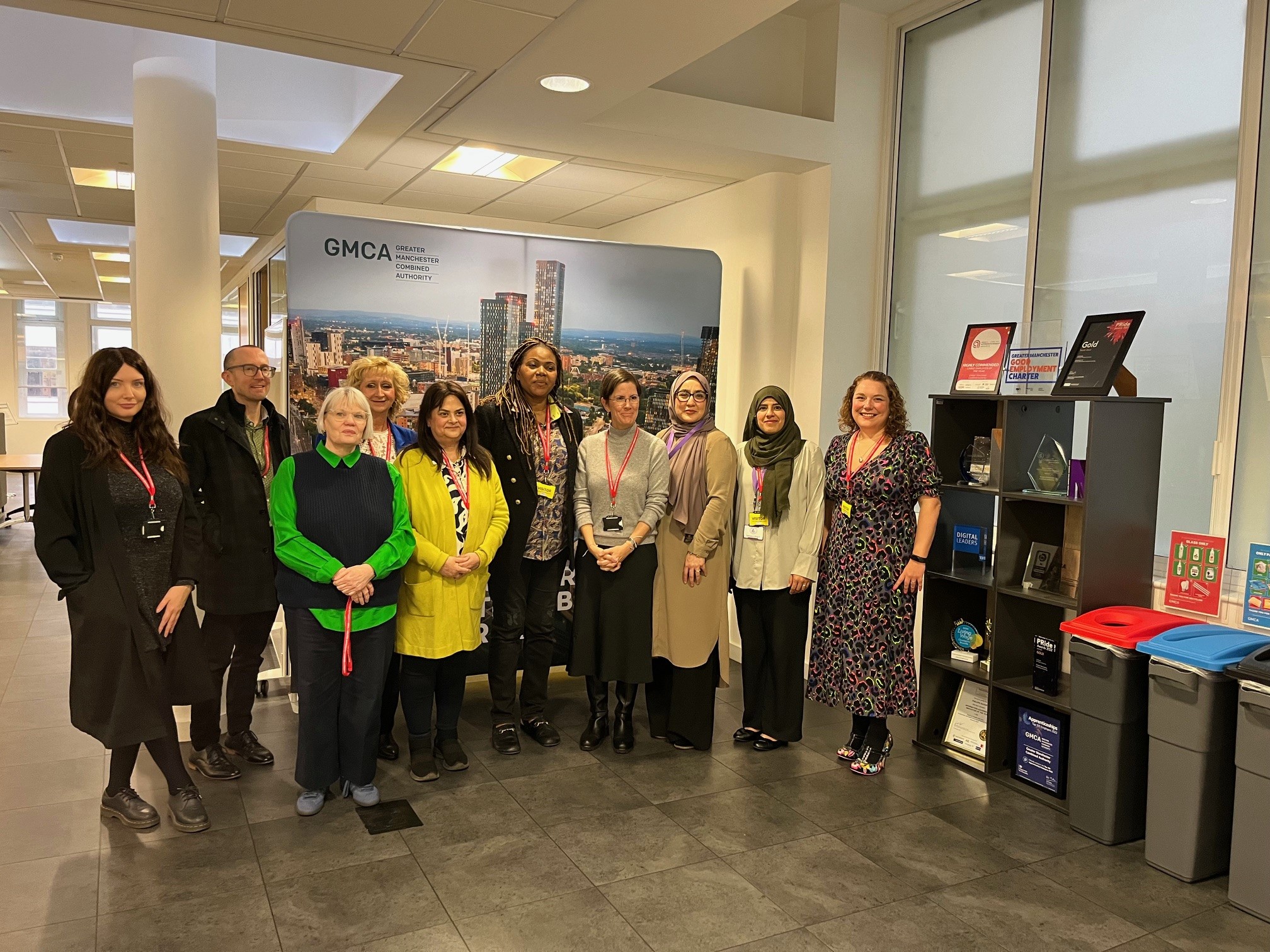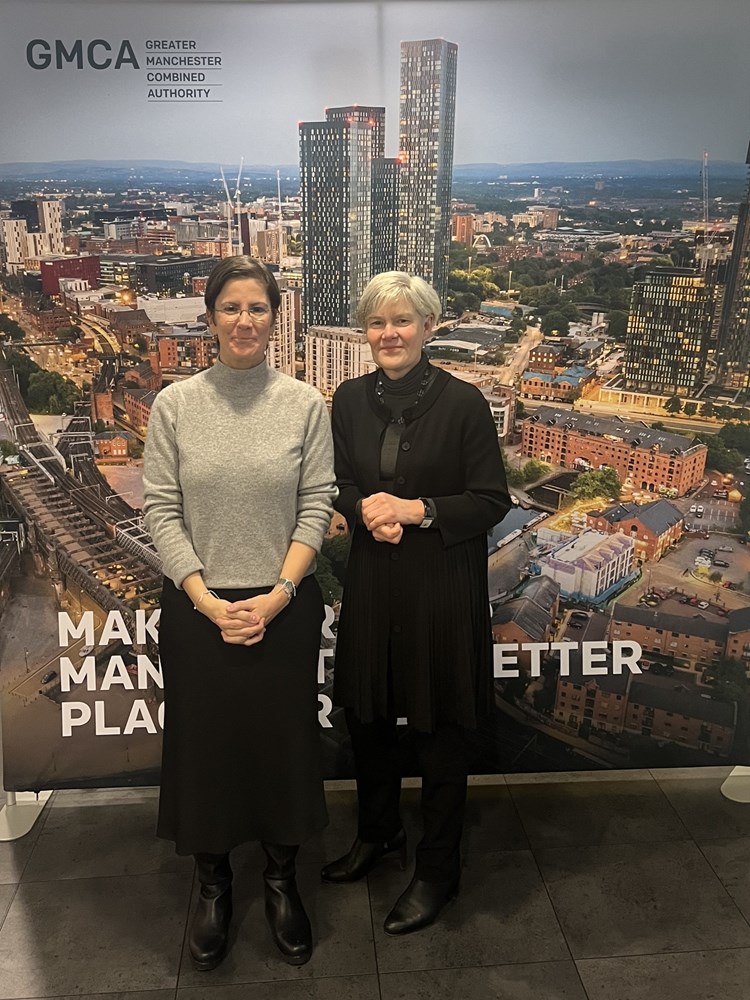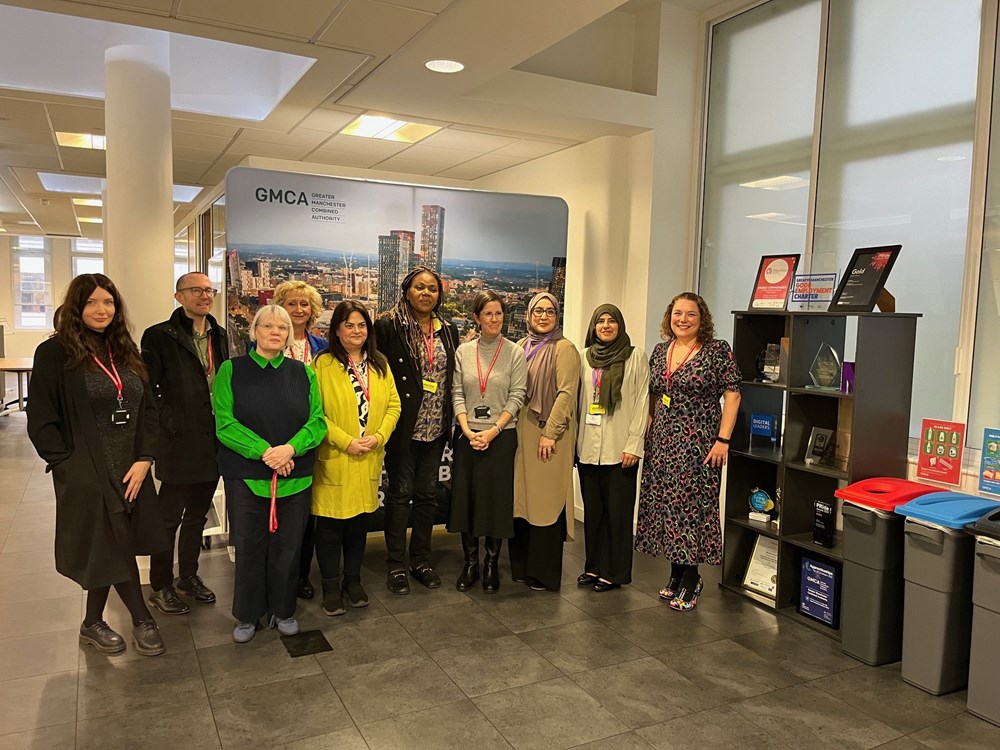
UN Special Rapporteur visits Greater Manchester
- A UN Special Rapporteur has visited Greater Manchester to better understand how Greater Manchester is delivering leading work to tackle gender-based violence through its 10-year Gender-Based Violence strategy
- The visit includes meeting with the Deputy Mayor of Greater Manchester, University of Manchester, Greater Manchester Police (GMP), specialist support services from across the city-region, including the new ground-breaking project, the Lotus Hub, alongside Greater Manchester’s Gender-Based Violence Lived Experience Panel
- The UN Special Rapporteur is Reem Alsalem, an independent human rights expert in violence against women and girls
Greater Manchester has today (Monday 19 February) welcomed a visit from UN Special Rapporteur on Violence Against Women and Girls, Reem Alsalem, to share learning on how the city-region is working to tackle all forms of gender-based violence and the attitudes that enable it.
The Special Rapporteur met with the Deputy Mayor of Greater Manchester, Kate Green, to discuss the 10-year Gender-Based Violence Strategy and hear how the city-region is taking a whole-system approach to tackling gender-based violence, by bringing its services and partners together – from the police to health and to education and the VCSE sector who work with victims and survivors.


She also held talks with a range of Greater Manchester partners and services that have helped to define and deliver the Gender-Based Violence Strategy, including representatives from Greater Manchester Police (GMP), the University of Manchester, Greater Manchester’s Gender-Based Violence Lived Experience Panel, and services from across the city-region that offer specialist support for people affected by gender-based violence. This included a visit to Greater Manchester’s new Lotus Hub, which supports women impacted by having no recourse to public funds.

Kate Green, Deputy Mayor for Policing, Crime, Criminal Justice and Fire, said:
“We recognise that gender-based violence is a significant concern not just for us, but globally too. We are proud to be able to share the successes and challenges we’ve had in delivering our Gender-Based Violence Strategy, and to help define how international efforts can tackle what remains an endemic issue for all women and girls worldwide.
“Here in Greater Manchester, we have made tackling gender-based violence a major priority. Through our strategy, we have made real progress to support our services and improve access, so that more women can get the help they need. We also continue to challenge men and boys to do more to help stop gender-based violence happening in the first place.
“We remain committed to ensuring that the voice of all victims and survivors is at the heart of our work, recognising that anyone can be a victim, and to addressing inequalities that are a barrier to some victims getting the support they need.”
Greater Manchester’s Gender-Based Violence Lived Experience Panel was set up by the GMCA in 2023 and brings together women from diverse backgrounds and with a range of experiences of gender-based violence. The city-region’s approach to tackling gender-based violence is shaped by the voice of lived experience and the Panel is at the forefront of ensuring this continues.
The new Lotus Hub is a ground-breaking project set up in Greater Manchester using Home Office funding secured by the GMCA in August 2023 and allocated to five organisations that work with black, Asian and minority communities across the city-region. The Lotus Hub provides specialist support for women from racially-minoritised communities who are experiencing gender-based violence, including women impacted by having no recourse to public funds. The hub will help ensure that women with complex issues can be responded to by one team, making it easier to access advice from specialist services.
Today is part of a wider visit to the UK, where the Special Rapporteur is undertaking field visits to different regions, including Greater Manchester, to gather information from relevant stakeholders before eventually reporting back to the UN Human Rights Council to outline findings, conclusions and recommendations. This is intended to be used as a tool to guide States when adopting measures to prevent and eliminate violence against women and girls.
Article Published: 19/02/2024 17:29 PM